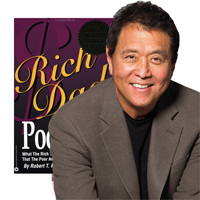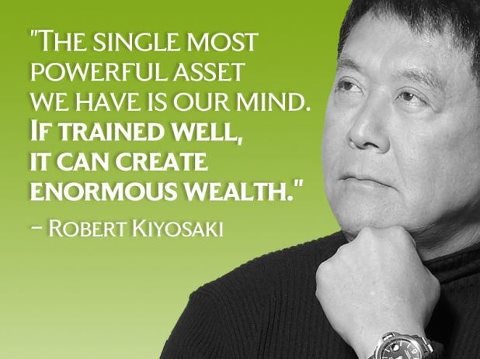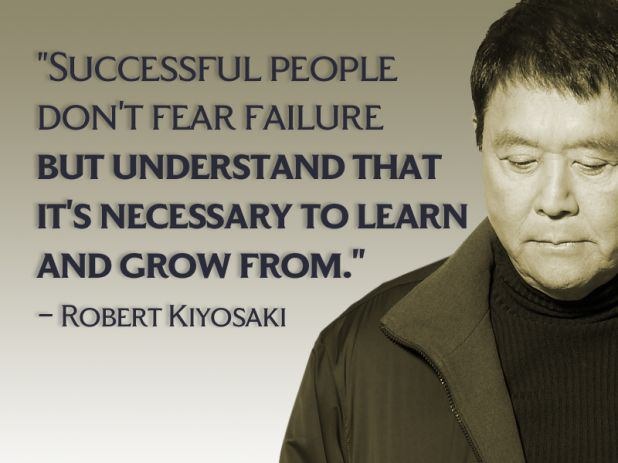She graduated with honors from Florida State University with a degree in accounting. She joined the ranks of what was then one of the big eight accounting firms, and went on to become the CFO of a turnaround company in the computer industry, tax director for a national insurance company and founder and Associate Publisher of the first regional woman's magazine in Wisconsin, all while maintaining her professional credentials as a CPA.
Wife and mother of three, CPA, consultant to the toy and publishing industries and business owner, Sharon Lechter has dedicated her professional efforts to the field of education.
She graduated with honors from Florida State University with a degree in accounting. She joined the ranks of what was then one of the big eight accounting firms, and went on to become the CFO of a turnaround company in the computer industry, tax director for a national insurance company and founder and Associate Publisher of the first regional woman's magazine in Wisconsin, all while maintaining her professional credentials as a CPA.
0 Comments
"The main reason people struggle financially is because they spent years in school but learned nothing about money. The result is, people learn to work for money... but never learn to have money work for them." says Robert.
How To Pay for a Child's College Education for $7000
As the book draws to a close and approaches publication, I would like to share a final thought with you. The main reason I wrote this book was to share insights into how increased financial intelligence can be used to solve many of life's common problems. Without financial training, we all too often use the standard formulas to get through life, such as to work hard, save, borrow and pay excessive taxes. Today we need better information. I use the following story as a final example of a financial problem that confronts many young families today. How do you afford a good education for your children and provide for your own retirement? It is an example of using financial intelligence instead of hard work to achieve the same goal. 10. CHAPTER TEN Still Want More? Here are Some To Do's
Many people may not be satisfied with my ten steps. They see them more as philosophies than actions. I think understanding the philosophy is just as important as the action. There are many people who want to do, instead of think, and then there are people who think but do not do. I would say that I am both. I love new ideas and I love action. So for those who want "to dos" on how to get started, I will share with you some of the things I do, in abbreviated form. • Stop doing what you're doing. In other words, take a break and assess what is working and what is not working. The definition of insanity is doing the same thing and expecting a different result. Stop doing what is not working and look for something new to do. • Look for new ideas. For new investing ideas, I go to bookstores and look for books on different and unique subjects. I call them formulas. I buy how-to 9. CHAPTER NINE Getting Started
I wish I could say acquiring wealth was easy for me, but it wasn't. So in response to the question "How do I start?" I offer the thought process I go through on a day-by-day basis. It really is easy to find great deals. I promise you that. It's just like riding a bike. After a little wobbling, it's a piece of cake. But when it comes to money, it's the determination to get through the wobbling that's a personal thing. 8. CHAPTER EIGHT Overcoming Obstacles
Once people have studied and become financially literate, they may still face roadblocks to becoming financially independent. There are five main reasons why financially literate people may still not develop abundant asset columns. Asset columns that could produce large sums of cash flow. Asset columns that could free them to live the life they dream of, instead of working full time just to pay bills. The five reasons are: 1. Fear. 7. CHAPTER SEVEN Lesson Six:Work to Learn - Don't Work for Money
In 1995,1 granted an interview with a newspaper in Singapore. The young female reporter was on time, and the interview got under way immediately. We sat in the lobby of a luxurious hotel, sipping coffee and discussing the purpose of my visit to Singapore. I was to share the platform with Zig Ziglar. He was speaking on motivation, and I was speaking on "The Secrets of the Rich." 6. CHAPTER SIX Lesson Five:The Rich Invent Money
Last night, I took a break from writing and watched a TV program on the history of a young man named Alexander Graham Bell. Bell had just patented his telephone, and was having growing pains because the demand for his new invention was so strong. Needing a bigger company, he then went to the giant at that time, Western Union, and asked them if they would buy his patent and his tiny company. He wanted $100,000 for the whole package. The president of Western Union scoffed at him and turned him down, saying the price was ridiculous. The rest is history. A multi-billion-dollar industry emerged, and AT&T was born. 5. CHAPTER FIVE
Lesson Four:The History of and The Power of Corporation I remember in school being told the story of Robin Hood and his Merry Men. My schoolteacher thought it was a wonderful story of a romantic hero, a Kevin Costner type, who robbed from the rich and gave to the poor. My rich dad did not see Robin Hood as a hero. He called Robin Hood a crook. 4. CHAPTER FOUR Lesson Three: Mind Your Own Business
In 1974, Ray Kroc, the founder of McDonald's, was asked to speak to the MBA class at the University of Texas at Austin. A dear friend of mine, Keith Cunningham, was a student in that MBA class. After a powerful and inspiring talk, the class adjourned and the students asked Ray if he would join them at their favorite hangout to have a few beers. Ray graciously accepted. "What business am I in?" Ray asked, once the group had all their beers in hand. "Everyone laughed," said Keith. "Most of the MBA students thought Ray was just fooling around." No one answered, so Ray asked the question again. "What business do you think I'm in?" The students laughed again, and finally one brave soul yelled out, "Ray, who in the world does not know that you're in the hamburger business." Ray chuckled. "That is what I thought you would say." He paused and then quickly said, 'ladies and gentlemen, I'm not in the hamburger business. My business is real estate." |




 RSS Feed
RSS Feed